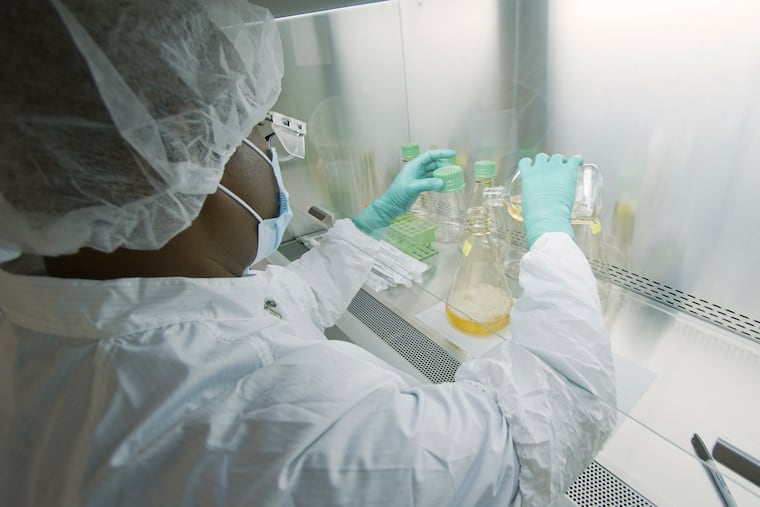Removing political influence over COVID vaccine can build trust for African American community | Expert Opinion
I understand the history of mistrust stemming from historical discriminatory practices in research against African Americans, but I know that an effective vaccine can reduce racial disparities.

The recent hospitalization of President Donald Trump is a reminder that, regardless of race or socioeconomic status, we are all vulnerable to COVID-19. However, racial minorities, particularly African Americans, have been disproportionately impacted by the pandemic. As of September, African Americans were 2.6 times more likely to have COVID-19, 4.7 times more likely to be hospitalized, and twice as likely to die from COVID-19 compared with white, non-Hispanics.
Even in the context of personal loss and grief, many people of color do not want to take the novel coronavirus vaccine or recommend it to their family and friends when it becomes available. According to the Pew Research Center, only 35% of African Americans have “confidence in medical scientists to act in the best interest of the public.”
As an infectious disease physician, scientist, and person of color, I find myself in the middle of two worlds. Though I understand the history of mistrust stemming from historical discriminatory practices in research against African Americans, I know that an effective vaccine has the potential to reduce racial disparities in health outcomes, provide a path toward economic recovery, and help put an end to the pandemic.
» READ MORE: Don’t know any COVID-19 patients who’ve died or been in the hospital? That may explain a lot.
The discovery of an effective vaccine is only the first step in the process, and its rollout among vulnerable communities is essential to mitigating the public health impact of COVID-19. As a result, it’s crucial to build trust between scientific agencies, the medical community, and the people they serve. The ongoing political meddling between the Trump administration and scientific agencies, such as the Centers for Disease Control and Prevention (CDC) and the Food and Drug Administration (FDA), directly undermines this trust.
We need to start by removing political influence over the scientific process. There should be a firewall between the scientific review of clinical trial results, its messaging, and the Trump administration. It is also important to reestablish the independence of scientific institutions by developing clear policies defining what constitutes a conflict of interest for political gain and then holding leaders accountable for following those policies.
Total transparency is key, not only around the results of clinical trials, but also about the process of testing the vaccine in research trials. For good reason, traditional research timelines have been compressed, with overlapping stages of clinical trials. We must acknowledge the strengths and limitations of this approach, and be intentional about measuring and monitoring the risks. While there are obvious and damaging risks in following traditional timelines and waiting too long for vaccine discovery, we must also understand the dangers of learning about safety as we simultaneously test — as we are currently doing to meet the demands of this pandemic. The scientific community and the public need to understand how results of clinical trials will be compared both for efficacy and side effect profile using such a compressed timeline, and how ultimately vaccines will be selected for mass production.
» READ MORE: Distributing a COVID-19 vaccine will be a logistical nightmare. Philly’s going to help solve it.
Many of the vaccines currently being tested use novel platforms to induce an immune response. These novel platforms allow for rapid manufacturing of vaccines; however, we are learning about their side effect profiles while doing the trials. Therefore, scientists must be very intentional about establishing transparency around adverse effects and reporting when they occur — both in the short and long term. We especially owe this to the people volunteering in clinical trials for the benefit of scientific advancement.
Further, racial disparities in our vaccine response must be addressed upfront. There needs to be increased representation of racial minorities in all phases, from trial design and results interpretation, to messaging and distribution planning to ensure equitable access. Recently, a panel of African American physicians from the National Medical Association, the largest and oldest national organization representing African American physicians, announced that they will independently vet clinical trial data before recommending the vaccine to African Americans. This might help address some of the mistrust in the African American community around the vaccine, but it doesn’t go far enough to ensure equitable access. COVID-19 testing and economic relief lagged behind in the most vulnerable communities early in the pandemic. This likely contributed, in part, to the racial disparities in health outcomes. Thus far, allocation of COVID-19 treatment with remdesivir, an antiviral drug with activity against SARS-CoV-2, has not been equitable using existing frameworks for allocation of scarce resources. This should not occur with the allocation of vaccines.
We must engage in conversations about race and racism, and how discriminatory policies and procedures present in research and throughout our health-care system contribute to these disparities. Structural racism can be addressed if we are intentional in doing so.
A vaccine that people don’t want or won’t get will not be effective. Rebuilding trust must be a top priority. By breaking these barriers, we will have hope that a safe and effective vaccine will benefit all communities, including the most vulnerable, and help put an end to the pandemic.
Florence Momplaisir, MD, MSHP, FACP is a senior fellow at the Leonard Davis Institute of Health Economics and an assistant professor in the division of infectious diseases at the University of Pennsylvania.